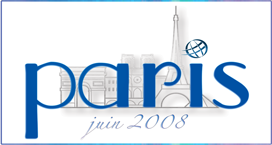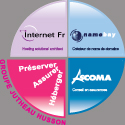Public Forum
Live Audio Stream:
English
français
español
Beta Test Stream of Live Scribing: http://ses1.penn.icannmeeting.org/iframe.html
Public Forum Running Sheet
PLEASE NOTE: Times below are a framework of close estimates.
4pm PUBLIC FORUM OPENS
4:00 – 4:15 EXPLANATION OF FORUM APPROACH (Kieren McCarthy)
DEMONSTRATION OF SCRIBE TEXT FEED (Kieren McCarthy)
EXPLANATION OF EDITED MEETING VIDEOS PLUS ICANN STAFF DOTSUB VIDEO
EXPLANATION OF IPV6 WIRELESS CHANNEL (Kieren McCarthy | Morgan Sackett)
4:15 – 4:25 STRATEGIC PLAN (Patrick Sharry)
4:25 – 4:30 IPv6 (Leo Vegoda)
4:30 – 4:45 INDEPENDENT REVIEWS incl. GNSO IMPROVEMENTS (Denise Michel)
4:45 – 5:00 REGISTRAR ACCREDITATION AGREEMENT (Kurt Pritz)
5:00 – 5:15 IDNs and IDN FAST TRACK (Tina Dam)
5:15 – 5:30 MEETINGS PAPER/REVIEW & OTHER SUBJECTS (Paul Levins)
5:30 – 6:00 BREAK FOR PEOPLE TO GET READY FOR GALA
6:00 – 6:30 IMPROVING INSTITUTIONAL CONFIDENCE (JPA CONSULTATION) (Paul Levins)6:30 – 7:00 NEW gTLDs (Kurt Pritz)
What do you want to discuss at the forum?
Here's your chance to help decide.
Click on this link to go to a quick and easy poll.
Once there, select the one topic you most wish to discuss (or add a new one if what you want to talk about is not there) and we will adjust the forum schedule to make sure that the community's desires are met.
Who should attend | All ICANN meeting participants are encouraged to attend this event to learn more about issues of concern to the ICANN community.






















Comments
Full text of Young-eum's Statement during the Public Forum
I am including the full text of my statement during the public forum since I wasn't given enough time to present it in full.
The grandfather of the current domain name system, Jon Postel, was called a 'benevolent dictator.' This term may be the 'secret' to the success of domain name systems today. That is, the elements of non-profit, non-commercial, motives managed in consideration of 'the public good,' may have contributed to the enormous success of the Internet today. These elements have also guided the .kr domain name system, which had been grandfathered by professor Kilnam Chon, and continued successfully by NIDA. The domain name system today has provided the general Internet community with a relatively satisfactory and non-confusing mechanism for establishing a presence on the Internet as well as for searching for and obtaining information.
It is also recognized that there is a real and valid need for the creation of additional TLDs to accommodate those cultural and language groups that have not been satisfactorily represented thus far. It is in this regard that I find the efforts at the creation of new gTLDs promising.
However, I am deeply concerned about the 'direction' that the new gTLD process seems to be heading towards. There is talk of the creation of possibly an 'unlimited' number of new gTLDs based on the 'market mechanism' of the domain business, talk of 'auctioning' TLDs that have more than one bidder, and registrants are more frequently being referred to as 'consumers'. The Internet seems to be heading towards increased 'commercialization'. The enormous increase in the size of ICANN's budget seems to be a reflection of such a trend. Commercialization may very well be a healthy driving force for the development of an Internet to meet the demands of many Internet users, but we all know from history that it will primarily cater to a particular segment of the population.
The Internet is a developing space, and needs to accommodate demands that are newly-arising. However, once we make a move to create a TLD, it will be extremely difficult to 'undo' the move. The possibility of creating numerous new gTLDs is an idea that worries many people for many reasons.
I sincerely hope that in the current new gTLD discussions ICANN and the current Internet community is not just looking at the immediate financial rewards and benefits that the Internet can provide for them, but also take a more wide-angled view, and seriously think long and hard about the 'future of the Internet.' I remember that one question was repeatedly posed to the Korean Names Council when we were discussing Internet Policies, and would like to end my comments with that question. That was, "Let's all think about the kind of Internet we would like to have, say, ten, twenty, fifty years from now?"
Young-eum Leeyesunny@knou.ac.kr
KNOU/NIDA